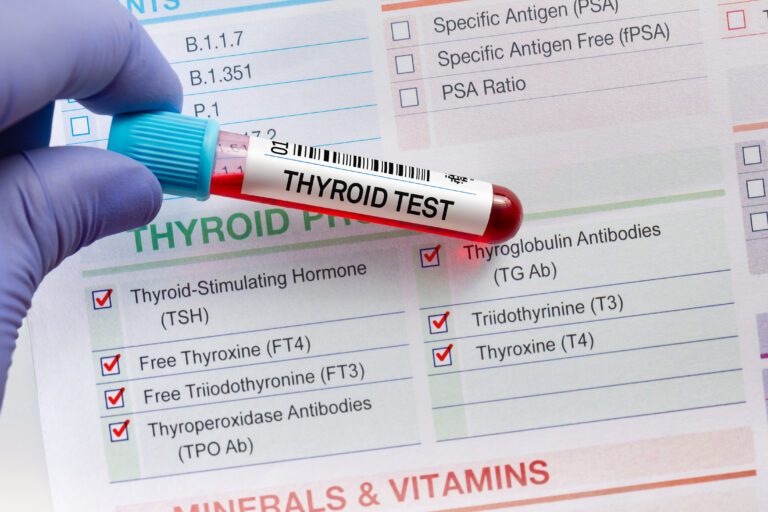Harmony with Hormonal Balance
Asma Jarad
AS MUSLIMS, WE BELIEVE GOD CREATED US IN the most perfect condition, as He says in the Quran: “Indeed, We created humans in the best form” (Quran 95:4). Just as we are instructed to nourish our souls with prayer and remembrance, maintaining physical health is also part of worship and gratitude to our Creator.
A common misconception that pops in people’s minds when they hear the word “hormones” is that they only relate to mood swings or reproductive health. In fact, hormones are important regulators of metabolism, sleep, stress response, and overall well-being for both men and women.
Hormones are chemical messengers that regulate vital functions. They are produced by glands in the endocrine system (our body’s internal communication network) and control processes such as metabolism, growth, reproduction, and emotional states. The Quran describes how God breathed into Adam (عليه السلام) from His soul, giving life to a complex body, including the intricate system of hormones: “So when I have fashioned him and breathed into him of My ˹creation,˺ fall down in prostration to him” (Quran 15:29).
“When hormone balance is disrupted, it leads to issues like mood swings, diabetes, or infertility. By maintaining a healthy lifestyle, we help protect the natural balance God designed.”
Hormonal health affects men and women differently, as each gender has specific hormones influencing various functions. Testosterone, for example, is the primary hormone for men, produced in the testes. It regulates muscle growth, bone density, and reproductive functions. Balanced testosterone is essential for vitality, strength, and mental clarity. Men also need smaller amounts of estrogen and progesterone to regulate mood and emotional health.
For women, estrogen and progesterone regulate menstrual cycles, fertility, pregnancy, and maintain bone and cardiovascular health. Hormonal changes are more noticeable during menstruation, pregnancy, and menopause. Prophet Muhammad (ﷺ) showed compassion and understanding of these natural phases, as seen in the hadith reported by Aisha during Hajj: “We set out with the Prophet (ﷺ) for Hajj and when we reached Sarif, I got my menses. When the Prophet (ﷺ) came to me, I was weeping. He asked, ‘Why are you weeping?’ I said, ‘I wish if I had not performed Hajj this year.’ He asked, ‘Maybe you got your menses?’ I replied, ‘Yes.’ He then said, ‘This is what God has ordained for all the daughters of Adam (عليه السلام). Do what all the pilgrims do except that you do not perform Tawaf round the Ka’ba till you are clean” (Sahih al-Bukhari 305). Moreover, the Prophet spoke of the immense rewards for women enduring the challenges of pregnancy and childbirth, highlighting the sacredness of these experiences. A woman who dies during childbirth is considered a martyr, illustrating the respect and honor afforded to motherhood in Islam (Sunan an-Nasa’i 3163).
Understanding essential hormones helps recognize their impact on health and how to maintain balance:

Hormonal disorders are commonly diagnosed using blood tests, which help measure hormone levels such as TSH for thyroid function, estrogen for reproductive health, and insulin for blood sugar regulation. According to Clinical Diabetes and Endocrinology, “testing for the presence, excess, or deficiency of hormones and the body’s ability to produce them when provoked is a key step in the diagnosis” of endocrine disorders. This confirms the importance of medical evaluations in identifying hormonal imbalances.
A balanced diet rich in fruits, vegetables, and whole grains is crucial for hormonal health. A study in Frontiers in Endocrinology highlights, “Diets rich in fish, seafood, vegetables, and fruit are positively correlated with the quality of ovulation, while processed meats and sugary drinks negatively impact endocrine health.” Another study in Nutrients emphasizes that “the mechanisms for the biological actions of diet and its active natural components have been mainly attributed to their multiple actions affecting various cellular and hormonal pathways.”
Physical activity plays a vital role in regulating hormones. According to European Food Research and Technology, “Regular exercise helps lower cortisol levels, particularly after endurance training, and promotes a balance in insulin sensitivity.” This highlights how physical activity supports hormonal balance by managing stress-related hormones like cortisol.
Sleep is essential for maintaining hormonal balance, especially for regulating melatonin and cortisol levels. Research from the Mayo Clinic states, “Consistent sleep patterns help maintain healthy levels of cortisol and melatonin, supporting overall well-being and reducing the risk of metabolic disorders.” Sleep deprivation, on the other hand, can lead to elevated cortisol, which is linked to increased stress and weight gain.

Chronic stress disrupts hormonal balance by elevating cortisol levels, which can lead to anxiety, weight gain, and other health issues. A study in Nutrients mentions that “a well-balanced diet, coupled with stress management techniques like mindfulness and relaxation, helps reduce the harmful effects of chronic stress on cortisol levels.” This underscores the importance of stress reduction through lifestyle choices.
Fasting during Ramadan or other periods can help regulate insulin levels and improve metabolic health. A Frontiers in Endocrinology study notes, “Fasting improves insulin sensitivity and aids in the regulation of blood sugar levels, making it beneficial for metabolic health when practiced carefully.” However, those with pre-existing conditions like diabetes should consult healthcare providers before fasting.
In the end, hormonal health is essential to overall well-being, and maintaining balance is part of the trust God gives in caring for our bodies. Through proper diet, physical activity, sleep, and spiritual practices, we support hormonal health and fulfill our responsibility to maintain the best form God created us in. By seeking both spiritual and medical remedies, we achieve better health and well-being.
Asma Jarad is a Chicago-based writer and communications strategist. Her diverse body of work spans health, food trends, and the intersection of Islam and American culture.